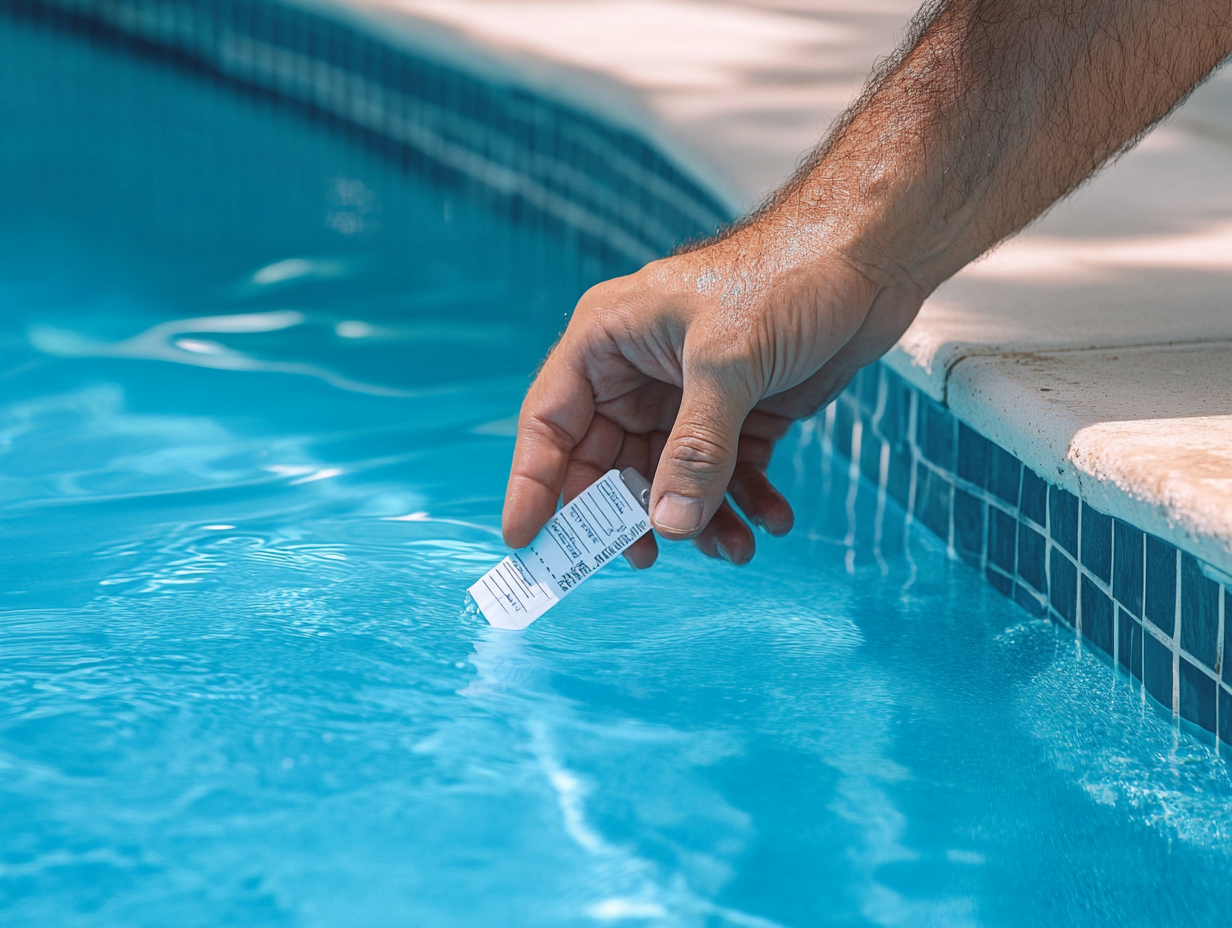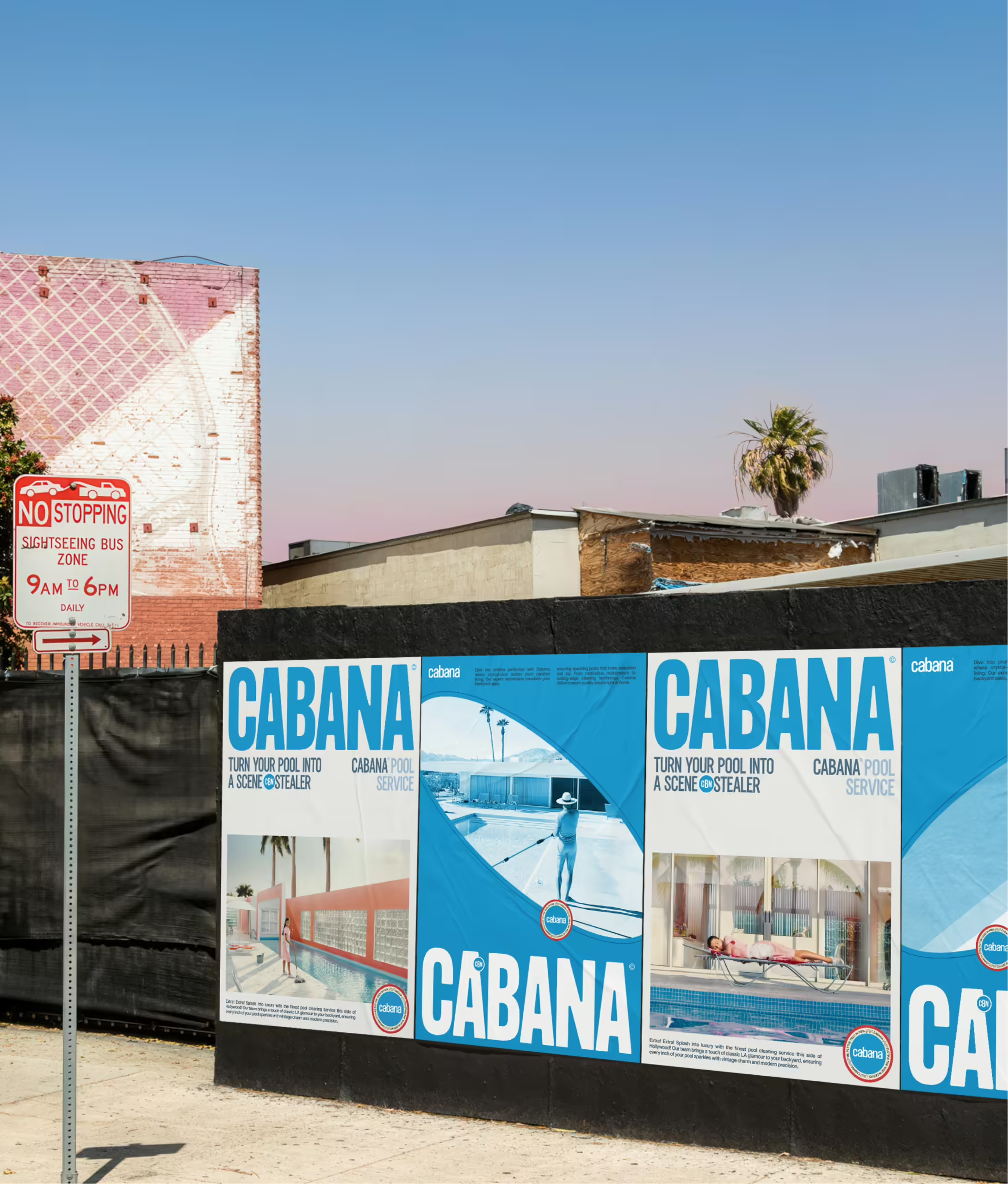Professional Pool Pump Repair Service
Cabana’s team will have your pool pump repaired in no time so you can get back to swimming.
Rated 4.9/5 by 2,200+ customer reviews
Expert Pool Pump Repair
Cooling off on a hot summer day or relaxing on the deck while watching the water sparkle is only possible because of one piece of equipment –– your pool pump.
If your pool pump’s not operating, the water in the pool stops flowing. That immediately causes problems, like algae growth and debris accumulation. Time is of the essence when you’re dealing with pool pump problems, so get in touch with the experts at Cabana for effortless pool pump repair.
Discover how simple pool pump repair can be in just two minutes.
Pool Pump Woes You Want to Avoid
Beneath all the fun in the sun, there’s one thing that keeps your pool operational: the pool pump. Without it, everything stops. You don’t have a pool. You have a stagnant body of water. Pool pumps put in a ton of work, and we often forget about them entirely, but they’re subject to a lot of wear and tear. Common pool pump woes that can leave you unable to take a dip include:
• Mechanical failure
• Electrical problems
• External damage
• Algae build-up
Dealing with pool pump problems? Cabana helps you get back in the water, fast.
From cleaning to repairs to installations, we've got you covered.
What's included with our weekly pool cleaning service?
Check & Balance Pool Chemicals
Say farewell to hassle as we balance your pool chemicals for optimum water quality.
Inspect Filter System & Backwash
Clean filters are the secret to an immaculate pool all year long.
Manually Vacuum Pool Surfaces
Nothing can replace a thorough, hand cleaning.
Treat for Algae
Conquer the green with our expert algae treatments.
Clean Skimmer & Pump Baskets
We keep the water flowing freely to help ensure your pool is immaculate.
Empty Catch & Maintain Automatic Pool Vacuum
It’s all about peace of mind that everything’s operating optimally.
Brush Steps & Walls
Regular deep cleaning ensures you have a tranquil oasis.
Skim Water, Clean Leaves, Remove Debris
We leave your pool looking immaculate for worry-free enjoyment.
Detailed Post-Service Report
We detail every step and all our findings so you can make accurate decisions.
What's included with Weekly Pool Service?

Check & Balance Pool Chemicals
Say farewell to hassle as we balance your pool chemicals for optimum water quality.
Inspect Filter System & Backwash
Clean filters are the secret to an immaculate pool all year long.
Manually Vacuum Pool Surfaces
Nothing can replace a thorough, hand cleaning.
Treat for Algae
Conquer the green with our expert algae treatments.Clean Skimmer & Pump Baskets
We keep the water flowing freely to help ensure your pool is immaculate.Empty Catch & Maintain Automatic Pool Vacuum
It’s all about peace of mind that everything’s operating optimally.Brush Steps & Walls
Regular deep cleaning ensures you have a tranquil oasis.Skim Water, Clean Leaves, Remove Debris
We leave your pool looking immaculate for worry-free enjoyment.Detailed Post-Service Report
We detail every step and all our findings so you can make accurate decisions.
Here's how it works.

step 1
Get a quote
View transparent pricing options, service plans, and schedule your service in just 5 minutes or less, all online.
step 2
Specialist visit
A specialist will visit your property to make a professional diagnosis and resolve any issues your pool's pump is having. After our visit, you'll get a service summary with personalized tips and suggestions for care.
step 3
Guaranteed results
We are so committed to providing you an awesome experience that if you aren't completely satisfied, we'll come back and fix it, free of charge. *
Identifying Pool Pump Problems
In a perfect world, your pool pump would work tirelessly in the background, a comforting hum beneath the laughter of a summer’s day spent in the water. But if you notice any of the following signs, it’s time for expert pool pump repair:
• Unusual sounds
• Unusual smells
• Frequently turning off
Pool Pump Upgrades
Proactively replacing your aging pool pump? Interested in something with better efficiency, variable speeds, or that operates quietly? Our team can assess your needs, recommend the right capacity, and even install your new pool pump quickly.
Pool Pump Repairs are Easy with Cabana's Experts
Cabana’s pool pump specialists offer:
• Quick, professional pool pump diagnosis
• Expert pool pump repair
• Custom pool pump replacement recommendations

Your neighbors say it best.



5,000+
Satisfied Customers
Let's get back to swimming.
Give us a call.
Talk with an expert and get a free quote.
Sun – Sat : 8:00 AM – 5:00 PM PST
Get online quote.
Get a fast, free online quote in just 5 minutes.
Need support?
Get your questions answered and connect with one of our experts in just seconds.
Popular Locations
Los Angeles, CAMalibu, CAVenice, CAPacific Palisades, CACulver City, CASherman Oaks, CAChatsworth, CABeverly Hills, CAHidden Hills, CABrentwood, CACalabasas, CAEncino, CAWoodland Hills, CAWestlake Village, CASanta Monica, CAPasadena, CAGlendale, CARolling Hills Estates, CAArcadia, CALa Canada Flintridge, CAWest Hills, CABel Air, CAHollywood Hills, CAManhattan Beach, CAWest Hollywood, CAPalos Verdes Estates, CARancho Palos Verdes, CALong Beach, CARedondo Beach, CAAgoura Hills, CABurbank, CAMar Vista, CAEl Segundo, CAPlaya Vista, CAPlaya Del Rey, CAMarina Del Rey, CASilver Lake, CAStudio City, CAInglewood, CATorrance, CA